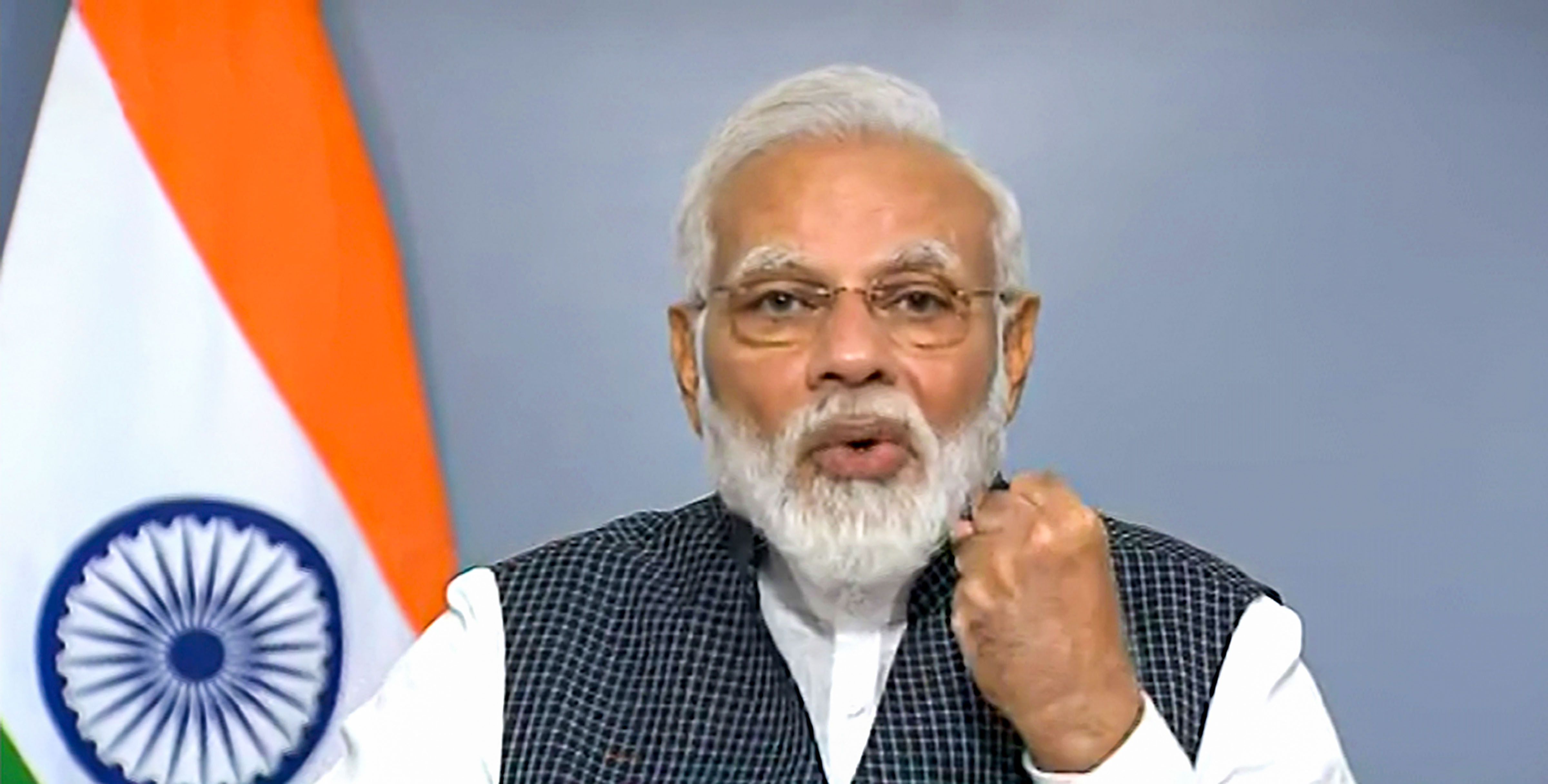Back to being state?
Couched in the speech was a lolly. If development work - a euphemism for maintaining peace because development will not come without it - happens, Jammu and Kashmir could go back to being a state. 'As J&K will see more and more development, I do not think it will remain Union Territory for long. Ladakh will remain a Union territory,' Modi said. The Prime Minister did not give any time frame for this.
Modi claimed that since the implementation of governor's rule “the state has seen effect of good governance and development on the ground. The projects that were left on paper are now being taken to the ground,” he said. He emphasised that in elections, Jammu and Kashmir will choose its own leaders. 'We all want that in the future Assembly elections should take place, a new government is formed, new energetic youths become MLAs, ministers and chief minister. I assure the people of Jammu and Kashmir that with all honesty and in a transparent atmosphere, you will get an opportunity to elect your representatives soon,' Modi said. In his 40-minute address, he mentioned family rule and corruption. Although, he did not name names, it was clear that the finger was pointing to the Muftis, Abdullahs and the Nehru-Gandhi family.
Come one, come all
“There was a time when Kashmir was the favourite destination of Bollywood filmmakers,” Modi said, hoping that one day international films would be shot in the Valley. Hindi, Telugu and Tamil film industries should invest in Jammu and Kashmir and Ladakh and to think about establishing theatre and other facilities, he said. He also urged people associated with technology to think about expanding tech and digital communication facilities.
Modi seemed keen to promote a particular Ladakhi herb worldwide. He referred to a plant that local people call Solo. 'Experts say the plant is a Sanjeevani for people living in high altitudes and security personnel deployed in snow-clad areas. It maintains the body's immune system in areas with low oxygen.... which Indian does not want that it should be sold world over... I have named only one herb. Such herbs are spread all over Jammu and Kashmir and Ladakh,' he said. If such herbs are recognised and sold, it will benefit people as well as farmers of the area, Modi added.
Id hope
The Prime Minister said the government would make sure that people would celebrate Id without any problem. He didn’t clarify if the lockdown would be eased by Monday, when Id will be celebated.
Narendra Modi in his first speech after the scrapping of Jammu and Kashmir’s special status called the change the beginning of a new era and linked Articles 370 and 35A to militancy in the Valley.
The Prime Minister's address on Thursday was partly about selling a dream to the people of India's northernmost state - now carved out as two Union territories - which is under a state-enforced lockdown. It was also an appeal to the rest of the country to make the most of Jammu and Kashmir and Ladakh's natural beauty and resources. Modi spoke about bringing Kashmir back on the movie screen, national and global. For a few minutes, he dwelt on the life-enhancing 'poudhhey (herbs)' of Ladakh. What did not figure in the speech were Section 144, curfews, the detention of political leaders and the prevailing mobile network blockade.
These are the key takeaways:
Terror, terror
Article 370 was adversely affecting the people of Jammu, Kashmir and Ladakh and “no one could explain the benefit of Article 370 in the lives of the people of Jammu and Kashmir,” Modi said. The Article instead gave Kashmiris separatism, terrorism, dynastic rule and widespread corruption. They were rather used as a weapon by Pakistan to provoke people. In three decades, Modi said, 42,000 people lost their lives.
Official data gives a different overall picture about terror activity in the state. According to a statement by the home ministry on July 23, between 2009 to 2019, the number of terrorist incidents in Jammu and Kashmir reduced by 86 per cent.
Welfare wand
“The law that was made for the welfare of the country, its benefits could never reach more than 1.5 crore people of Jammu and Kashmir,” the Prime Minister said. He gave a list of what the people of the state had missed out on. Children didn’t have the right to education, daughters didn’t have the same rights as sons, the safai karamchari act was there in other states but not in Jammu and Kashmir, nor were Dalits and minorities protected by strong laws. “Jammu and Kashmir will soon come out of the negative effects now that Article 370 and 35A are history,” Modi said.
Home minister Amit Shah had also cited the lack of development as a reason for scrapping the special privileges enjoyed by the state. Several studies have shown that the northern state fares poorly in job creation becasue of militancy. But the theory that the state lags behind the rest of the country in overall development may not be entirely true.
At a recent solidarity march for Kashmiris, development economist Jean Dreze tried to debunk Shah's argument linking Article 370 to the state's lack of overall development. He held up a small chart that compared Jammu and Kashmir to Gujarat, from where Shah and Modi hail, on health care and welfare parameters in 2015-16. The Fourth National Family Health Survey showed that Jammu and Kashmir had fared better than Gujarat, whose development model the BJP had once wanted to replicate all over India.











